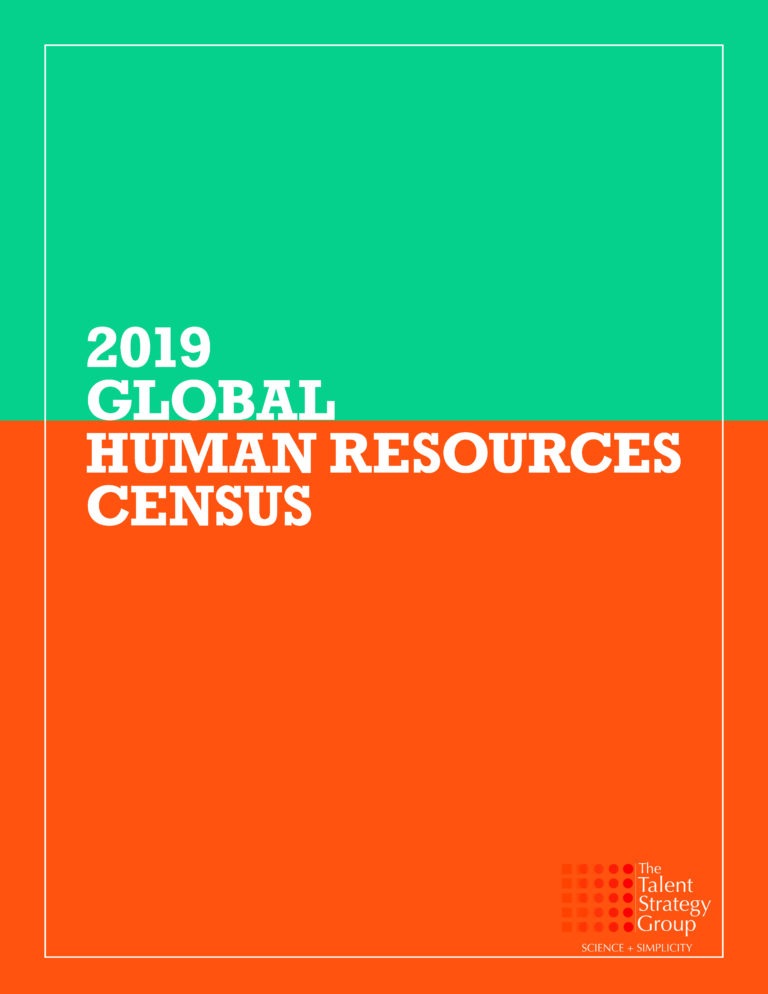2019 Global Human Resources Census

By Marc Effron, President, Talent Strategy Group
Our 2019 Global HR Census finds that a curious dichotomy describes those in the HR field. HR leaders show up as highly committed and engaged. Many are willing to sacrifice to achieve their career goals. They care deeply about developing people and they possess broad and deep experience in the function.
These combined qualities should provide a strong foundation for those leaders to deliver positive outcomes for their organizations. This potential is undercut, however, by attitudes and capability gaps that raise serious questions about the function’s ability to add strategic value.
Our survey data shows that HR leaders value people more than they value their businesses. They rate their ability to influence and their business knowledge as their two worst capabilities. They have many HR experiences but not enough in the areas most critical to organizations’ future success, according to their self-assessments.
These challenging insights inform this report’s four key findings:
1. People First, Business Second: HR leaders’ reasons for being in the profession, their specific capabilities and their career goals prioritize people and the HR function above the business.
2. Next Gen Skill Gap: The experiences and capabilities that HR leaders possess provide a strong foundation but don’t include those that will differentiate the field in the future.
3. Tempered Ambition: Few HR leaders have a desire to move into C-suite roles and only a plurality want to become a CHRO.
4. Engaged, Rested and Ready: HR professionals are overwhelmingly engaged in their roles, willing to sacrifice to get ahead, reasonably well-rested and not especially stressed.
The findings raise questions about the purpose of HR in today’s organizations and the typical HR leader’s mindset as they approach their job.